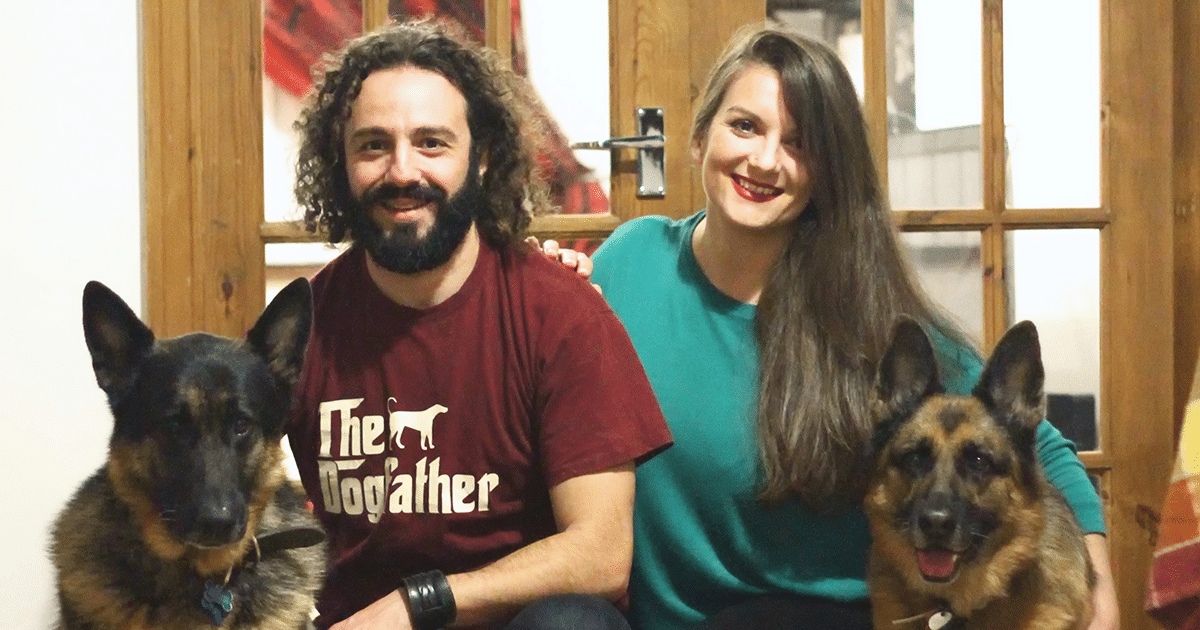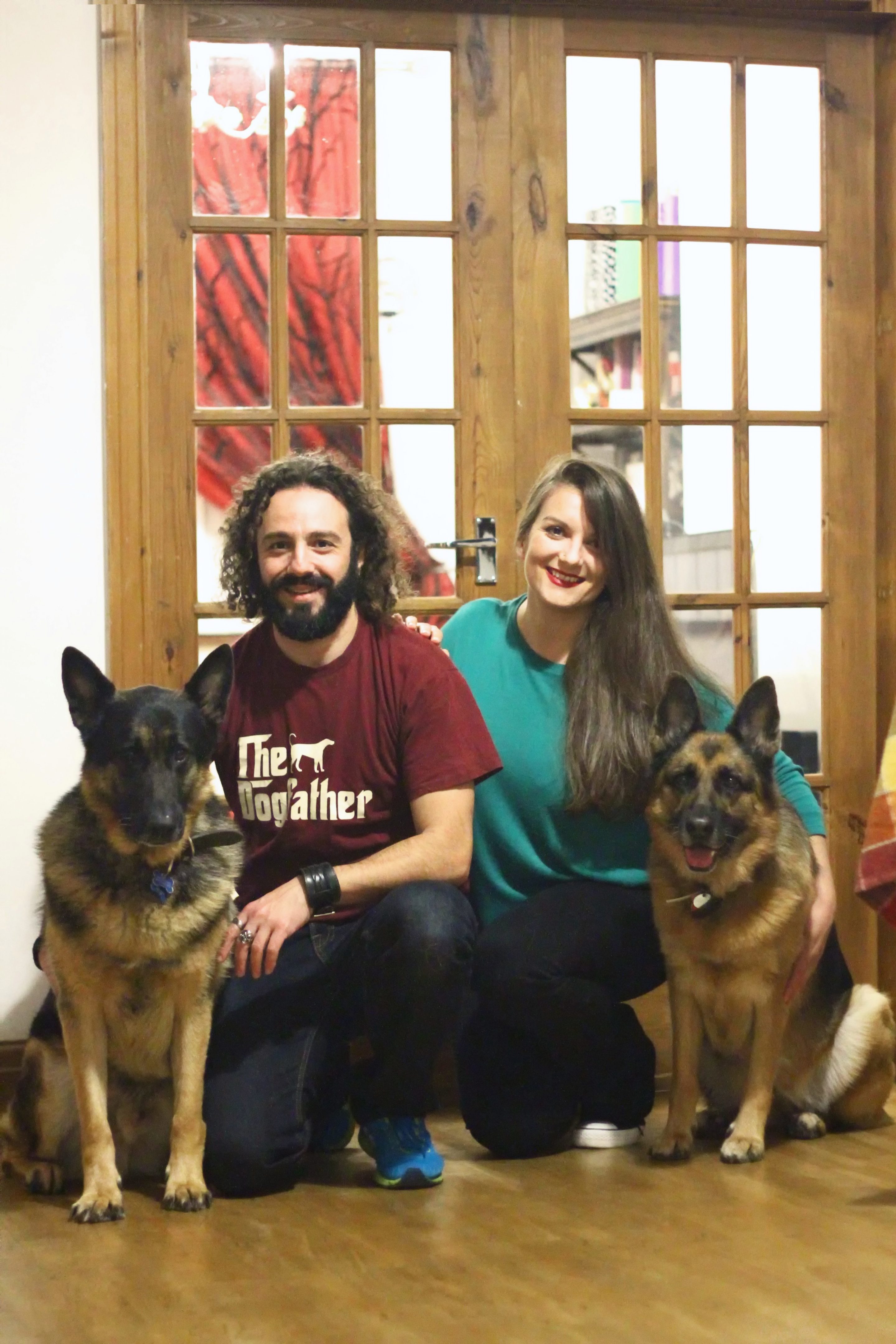Become an Android developer in just 6 months.
Start Learning

George Ampartzidis’ career wasn’t going where he wanted. He’d worked in the banking sector for twelve years, but was unable to move up through the ranks. He’d added a Master’s in Information Systems to his resume, but it hadn’t enhanced his employability. He’d even expanded his search for new roles across his homeland of Greece, but he found opportunities severely limited.
Then George heard about a Udacity scholarship, and saw in it the opportunity to start something new. He applied, and was accepted. Less than two years later, nearly everything in George’s life has changed. He moved with his wife from Greece to the UK, and he landed a great new role—as an Android developer!
We spoke with George to hear how he succeeded in making such a spectacular career change.
George, less than two years ago, you were a 12-year veteran of the banking industry, in a career you felt was going nowhere. Today, you’re an Android Developer! How did you do it? Were you always interested in programming?
Before my first Nanodegree program, I didn’t have any experience with programming. My first degree was in mathematics, and I started that back in 1994 when I didn’t even have a computer. When I graduated, I got a job in a Greek bank. It was as a teller in retail banking—so nothing to do with any kind of coding!
Did you enjoy retail banking? What were your career goals at that point?
After a few years of working, I really wanted to progress my career and move up the ladder at my bank. But I found I really couldn’t. There just weren’t opportunities with the skills I’d built in my role.
So you decided to try and acquire some different skills? Were you already thinking career change at that point?
I thought about what more I could do to change careers. But I wanted to stay in the bank at that point, because it was a decent job, at least in terms of getting paid. I decided to enroll for a Master’s in Information Systems, which I could study remotely while still working.
Did having a Master’s improve your career opportunities at work?
No! It was tough, and I did well and graduated, yet it still felt like I was being told “you’re a teller, you can’t do more than that.” It was really bad for me and I felt depressed, because it seemed like I wasn’t allowed to move. And I didn’t know people inside the bank who could help me progress.
How did you escape that feeling of being stuck, and was there some kind of a turning point for you?
After a few more years, there was a voluntary redundancy scheme at my bank. I decided this was my moment to do something different, so I quit. I didn’t have a clear idea what I would do next, but staying at the bank felt really unhealthy.
Was that when you discovered Udacity, after you left the bank?
It was actually a few weeks before I left that I learned about the Udacity scholarship. It was for the Android Basics Nanodegree program. It wasn’t necessarily what I was looking for at the time—I hadn’t made up my mind about what to do next at all—but it seemed like an interesting opportunity arriving at just the right moment. So I put my application in, and while I was waiting to hear about it, I left the bank. A week later I got the confirmation I’d gotten the scholarship!
That’s pretty remarkable timing. Do you think it made things easier or harder for you, having everything change so quickly?
Well, I didn’t have a job, but I did have my redundancy payment, so I was able to concentrate on studying. And I really enjoyed the experience.
That’s especially good to hear, given that you were really feeling a lack of support where you were previously. How did it feel to suddenly find yourself in such a different environment?
It felt like there were so many people behind me—forums that were really helpful, and lots of support from other students.
And how about the Nanodegree program itself? Did you like the material?
I found the material really engaging and professional, but what I liked most of all was that I was able to quickly apply what I was learning to the projects. Even if the project was building something fairly basic, I was able to apply new skills to build them. It was the chance to learn by doing—instead of just learning—that I really loved.
She was very supportive, which was really important. She could see I hadn’t been happy working at the bank for a really long time. And she knew that me leaving and studying something new could affect us both. She really wanted me to succeed because it felt like our best opportunity to change our lives.
Your hard work meant that you successfully completed the Android Basics Nanodegree program. What was your next step?
Around September of last year, I learned of a scholarship for the more advanced Android Developer Nanodegree program. I applied immediately and got in. It was more difficult, more advanced, and really engaging.
When did you start to think seriously about a career as an Android Developer?
I actually wasn’t really sure I would try to become an Android developer until I started the second Nanodegree program. I’d been keen to keep my options open, but I realized that wasn’t going to help me get a job. I told myself: “Stop thinking of anything else. Focus on studying. Try to be as good as possible at Android.” I knew the program was a great opportunity, so I really wanted to focus and try to land a job developing apps.
One big part of that was that I wanted to find a job that would allow my wife and myself to leave Greece and move to the UK. My desire to leave Greece was really part of my motivation for quitting my old job at the bank—Greece’s economic climate wasn’t great and there seemed to be more job opportunities elsewhere.
Searching for a job internationally can be especially challenging. How did you approach that process?
It wasn’t easy. In fact, people told me I wouldn’t be able to manage it. Fortunately, after around six months, I proved them wrong. I started looking for developer jobs in the UK online while I was still studying my program, and got invited to a few interviews which I did remotely from Greece. I think I did maybe three or four. The first ones didn’t go great. Although I had projects and new skills to talk about, they were still my first experiences of interviewing for a developer role.
People don’t often talk about getting “better” at interviewing, but did you find that gaining interview experience enabled you to improve your interview performance?
The last interview I did went so much better. I was far more prepared for the experience. I’d taken my Nanodegree program’s extracurricular course on careers, which helped a lot. It meant I was ready for the technical developer questions they asked.
How did you feel when it came time to describe your Udacity experience in the context of an interview? Did having a Nanodegree credential make a difference?
The company actually knew about Udacity, and were very enthusiastic about it. They told me they’d employed a few other Udacity graduates, so they knew all about the work that goes into finishing a Nanodegree program.
I also showed them a finished app I’d built to practice my skills after my first Nanodegree program, and they were really impressed. I think they could see they had someone who had the ability to learn and apply new skills!
So here’s the big question—did they offer you the job?
They offered me the job! Which I was so, so happy about! It’s an Android Developer role with a UK company that builds apps about public transport. And when I started, they actually had me spend the first weeks completing my Nanodegree program, alongside a few other free Udacity programs. It was a great way to onboard with the company!
How does it feel to have finally achieved your goal of landing a new developer role AND moving countries?
It feels great. It was scary quitting a job after so many years, and without knowing how to start something new, but I’m so glad I did. I really want to focus now on establishing myself as a developer and making sure everything goes really well here. Leaving Greece for somewhere else has been something I wanted to do for a number of years, so my wife and I are really enjoying settling in our new home.
˜
Thank you George for sharing your incredible story. The odds seemed stacked against you, yet you saw an opportunity and seized it, despite the risk. Now, in a very short space of time, you’ve made a mid-career change into an entirely different industry, and you’ve achieved your goal of starting a new life in a new country. We wish you and your wife the best of luck!





